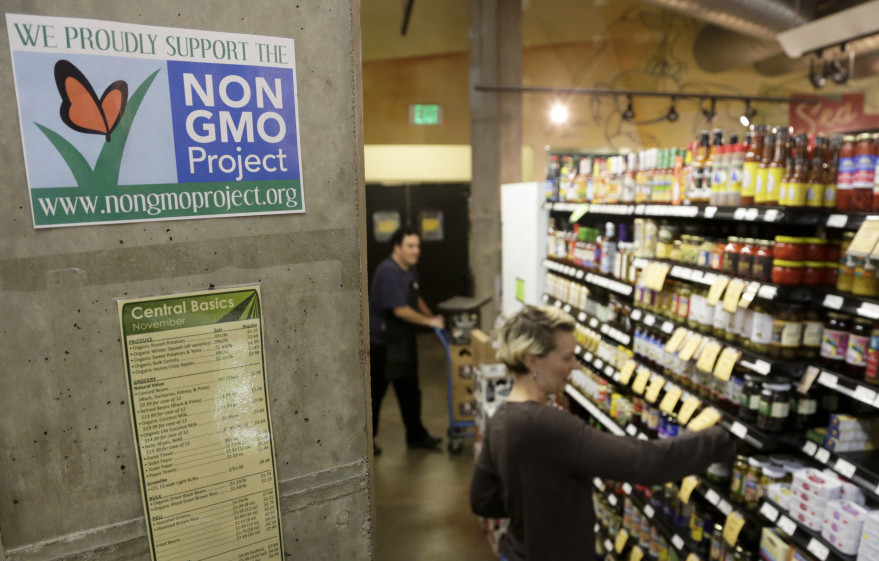Maine got it right two years ago, when the Legislature passed a law requiring labels for food products that contain genetically modified organisms, or GMOs, as soon as New Hampshire, Vermont, Massachusetts and Connecticut do the same.
The law puts Maine on record as holding in high regard the right of consumers to know what is in their food and to support food producers whose methods they agree with.
But the supporters of the 2014 law also understood that foods containing GMOs pose no health risks, and that there are real costs associated with forcing mandatory labels in one small state and viable alternatives available to consumers until the other states in the region pass their own laws.
Nothing’s changed since then, except for further confirmation of the safety of foods containing GMOs. So it remains unnecessary to eliminate the trigger clause – the part of the labeling mandate that relies on other states – as proposed in a new bill, L.D. 991.
However, we do support the other provision of L.D. 991. It would revoke a clause automatically repealing the original law if the other states don’t pass legislation by 2018, thus allowing Maine to continue to stand as a supporter of reasonable transparency on food labels.
Although there are valid issues with GMO crops, unreasonable claims also have been made during the debate – particularly when it comes to the safety of GMOs, which have been criticized as “frankenfood.”
The criticism has reached consumers – about 57 percent of Americans believe it is “generally unsafe” to eat GMOs.
But people have been eating GMOs for more than 20 years now, and the science is pretty clear. The tens of thousands of products on supermarket shelves that contain GMOs are perfectly safe, according to numerous credible studies. The U.S. Food and Drug Administration, the World Health Organization, the American Medical Association and the National Academy of Sciences, among many other organizations, have concluded the same.
Unfortunately, the spread of false claims against GMOs may make labels confusing to consumers, who could decide to opt for more expensive options based solely on the hint that they are unsafe.
That can be overcome by time and public education. But consumers could still be hurt if Maine decides to mandate labels on its own. Food costs and/or variety are likely to be affected, though not by the magnitude suggested by labeling opponents.
In a state where so many people are struggling to pay for food, there’s no reason to risk burdening food retailers and driving up costs – or to invite an inevitable court challenge on constitutional grounds, as is happening in Vermont – by instituting mandatory, Maine-only labeling. No health risk is at hand, and thousands of products already carry a label through the Non-GMO Project.
GMO crops do present legitimate concerns. They are in large part the product of large-scale, corporate-controlled agriculture. They promote some worrisome practices, such as the heavy use of herbicide, and they have contributed to the loss of seed variety.
All that goes against the kind of small-scale, organic farming that is growing in Maine and that should be wholeheartedly supported.
For the sake of consumers and grocers, though, we should support them by dropping the labeling law’s sunset provision, and showing other states that we are willing to act as soon as they are, too.
Send questions/comments to the editors.



Success. Please wait for the page to reload. If the page does not reload within 5 seconds, please refresh the page.
Enter your email and password to access comments.
Hi, to comment on stories you must . This profile is in addition to your subscription and website login.
Already have a commenting profile? .
Invalid username/password.
Please check your email to confirm and complete your registration.
Only subscribers are eligible to post comments. Please subscribe or login first for digital access. Here’s why.
Use the form below to reset your password. When you've submitted your account email, we will send an email with a reset code.